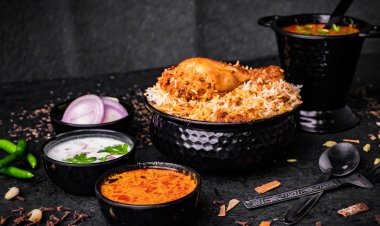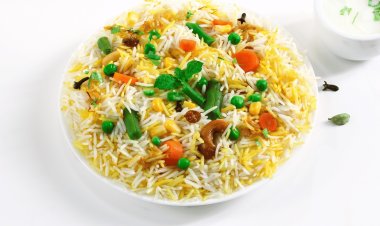International Day of Yoga 2023: Check the powerful duo of yoga and Healthy Diet
Check the transformative synergy of yoga and a nutritious diet. Learn how these practices work together to boost energy, improve digestion, reduce inflammation, and promote overall health.

On 21st June 2023, We are going to celebrate the 9th International Day of Yoga.
Thanks to the tireless efforts of Prime Minister Shri Narendra Modi, June 21 has been designated as International Yoga Day by the United Nations General Assembly. In its resolution, the UNGA recognized that Yoga offers a comprehensive approach to promoting health and well-being, encompassing the unity of mind and body, action and thought, restraint and fulfillment, and harmony between humans and nature. This declaration sparked a transformative movement towards holistic health, with a greater emphasis on prevention rather than cure. The global dissemination of knowledge regarding the benefits of practicing Yoga has become increasingly important for the well-being of people worldwide, ushering in an era of holistic health revolution.
When utilized together, yoga and a nutritious diet,they can do wonders for your well-being and energy. These practices work together to make you feel more energized, focused, and nourished from the inside out. It's like a powerful combination that enhances your overall health and vitality.
Eating healthy brings you many benefits:
- It helps your digestion and keeps your gut healthy.
- You'll have more energy and feel lively.
- It reduces inflammation in your body.
- You lower the chances of getting long-term illnesses.
- Your mood and mental health improve.
1. Keep Hydrating your body while practicing Yoga
Stay well-hydrated during your yoga practice. Yogis understand the importance of proper hydration. Drinking enough water is crucial for your muscles, joints, detoxification, and cardiovascular health. However, staying hydrated goes beyond just drinking lots of water. You can make dietary changes to improve your hydration levels.
Herbal tea is often served after yoga. Besides its calming effects, herbal tea is nourishing, cleansing, and hydrating for your body's lymphatic system, which aids in natural detoxification. Opting for tea instead of coffee, juice, or soda helps maintain your body's health and hydration.
2. Prioritize your digestion through mindful eating
Many yogis believe that an unhealthy diet and poor digestion are at the root of diseases and ailments. To support efficient digestion, nutrient absorption, and proper elimination, focus on consuming whole, unprocessed foods. Choose fresh ingredients that are free from chemicals, preservatives, and unnecessary additives like added sugars.
Avoid processed foods, as they can contribute to toxin buildup in your body and hinder digestion. Instead, include whole grains, oatmeal, and vegetables like spinach, kale, cauliflower, broccoli, Swiss chard, and lettuce in your meals. These choices promote healthy elimination and provide essential nutrition. Whenever possible, shop for your groceries in the produce section to make positive strides toward better digestion.
3. Choose whole foods and prioritize clean eating.
Whole foods are packed with nutrients and contain important amino acids that our bodies need. Since our bodies can't produce nine out of the 22 essential amino acids, we must obtain them from our diet. These amino acids are crucial for tissue repair and muscle metabolism and aren't found in processed foods.
To ensure you get these essential amino acids, focus on consuming protein-rich foods. Opt for fresh and organic ingredients to avoid toxins and chemicals. Avoid canned foods as they often contain preservatives that can harm your kidneys. Being prepared is key to maintaining a whole food diet. Make a shopping list and plan your meals for the week to make grocery shopping and cooking easier.
4. To support healthy eating habits inspired by yoga, focus on meal planning and preparation.
By planning your meals in advance, you ensure that you have nourishing options readily available. Whenever possible, take the time to prepare your own meals. This way, you have control over the ingredients and cooking methods, promoting healthier choices and fostering a stronger connection to your food.
Mindfulness plays a key role in yoga-inspired healthy eating. When you practice mindfulness while eating, you fully engage your senses. Pay attention to the taste, texture, and aroma of your food. Slow down, chew your food thoroughly, and savor each bite. By being present and attentive during meals, you enhance the overall enjoyment and satisfaction you derive from your food.
5. Important Aspects
Enhance flavor and health by incorporating Ayurvedic spices and herbs into your cooking. For instance, turmeric reduces inflammation, ginger aids digestion, and cinnamon helps balance blood sugar levels. These additions not only add taste but also boost the nutritional value of your meals.
Maintain moderation and balance in your eating habits. Avoid extremes of overeating or undereating and aim for a well-rounded intake of macronutrients (carbohydrates, proteins, and fats) and micronutrients (vitamins and minerals). Pay attention to your body's cues of hunger and fullness to guide your portion sizes. By practicing mindful eating, you can find the right balance for your body's needs.
What's Your Reaction?
 Like
0
Like
0
 Dislike
0
Dislike
0
 Love
0
Love
0
 Funny
0
Funny
0
 Angry
0
Angry
0
 Sad
0
Sad
0
 Wow
0
Wow
0






































































































